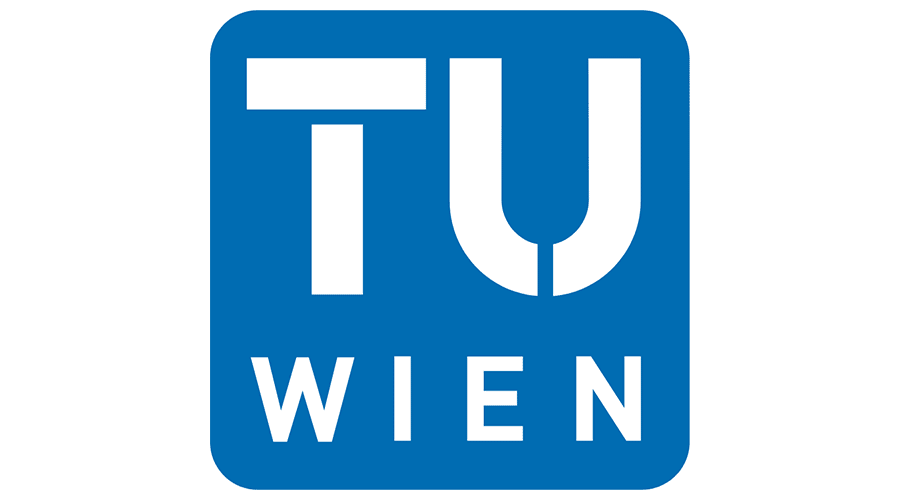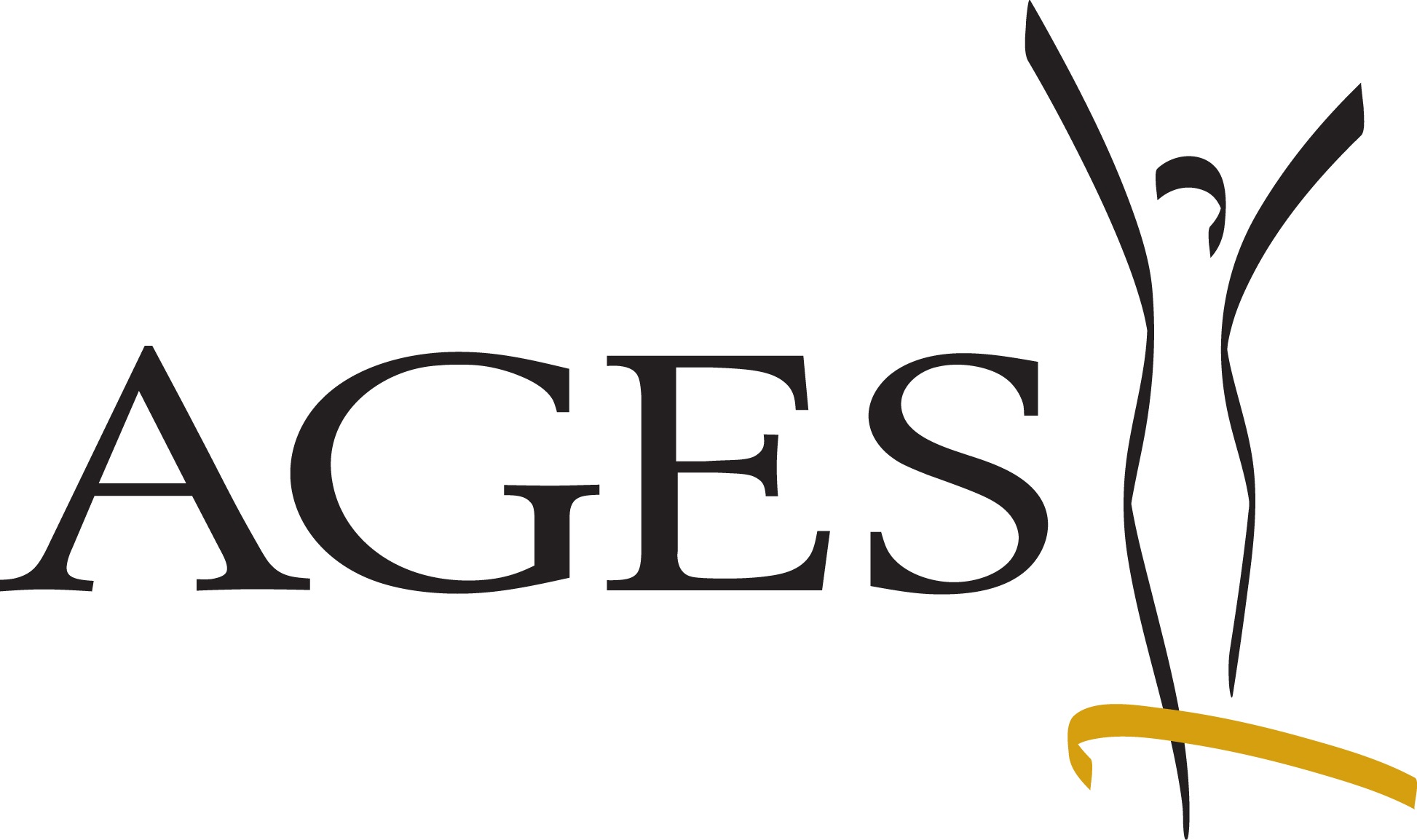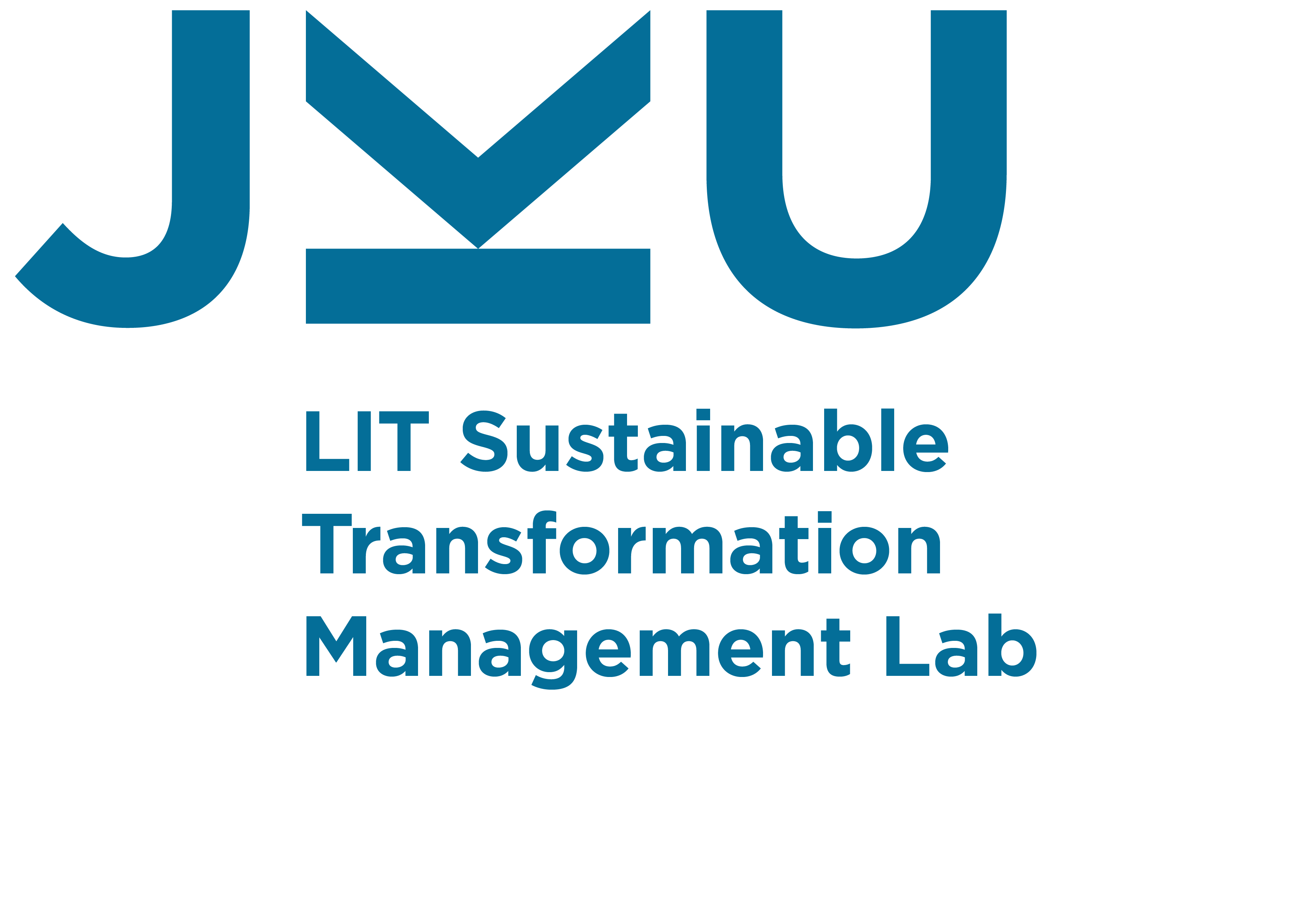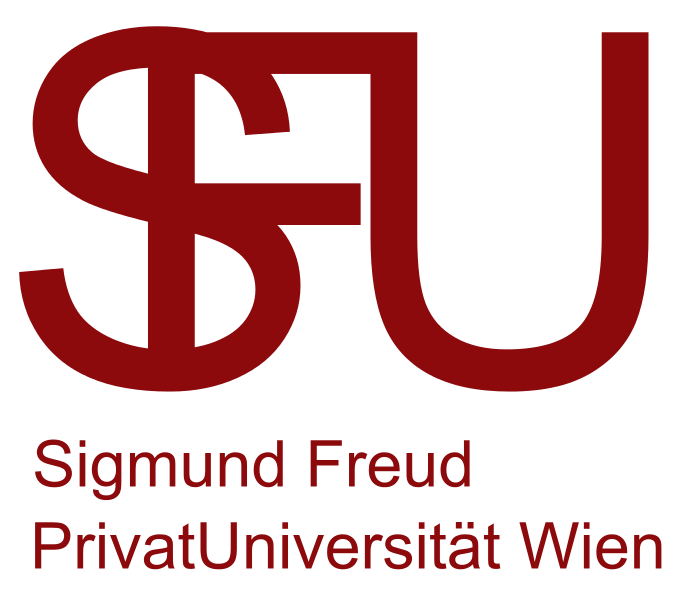TRA:WELL
The TRA:WELL project focuses on the relationship between active mobility (walking, cycling, scooters) and the well-being of young people. The entire physical activity behaviour is considered in order to assess the contribution of active forms of mobility to the fulfilment of physical activity recommendations.
What are the aims of the project?
The project has three main objectives:
- TRA:WELL investigates the relationships between children's mobility behaviour and subjective well-being. The focus is on active and independent mobility. The research approach takes into account the entire physical activity behaviour and shows the contribution of active forms of mobility to the fulfilment of physical activity recommendations.
- In this context, TRA:WELL analyses the role of subjective perception of the built environment and develops a child-centred perspective on how urban environments can promote child-friendly mobility.
- Students (further) develop methods and instruments that enable the complex issues of attitudes, behaviour (mobility, movement), well-being and freedom of choice in the mobility context to be recorded for the target group of children.
How can you participate in research?
The pupils at the TRA:WELL cooperation schools* were trained in an online survey tool as part of workshops. Pupils were invited to record their daily journeys and activities as well as their well-being in a diary over the course of a week. This allowed statements to be made about their mobility behaviour and their overall physical activity. The data can be used to analyse the relationship between active mobility and physical activity and well-being. There are also teaching materials that were developed in the project and are available free of charge.
*Participation is restricted to these pupils and therefore closed to outsiders.
Teaching materials
The project's website offers a wide range of free teaching materials on the subject.
Picture gallery
https://www.citizen-science.at/en/about/team/tag/health?start=10#sigProIdaa2a8d0401
This project fulfils version 1.1 of the quality criteria for citizen science projects on Österreich forscht.
KoKo-Health
Giving a voice to children and adolescents: Co-research with children and adolescents in developing a model of health literacy
Background
Health literacy is crucial for promoting health and well-being It encompasses finding, understanding, evaluating, and applying health information and services to make informed decisions for maintaining or improving health and quality of life. This competency is important at every stage of life, including in childhood and adolescence. However, existing models of health literacy in childhood and adolescence are merely based on adult-oriented concepts and neglect the understanding and perspectives of children and adolescents as experts in their own lives.
The Project 'KoKo-Health'
The project 'KoKo-Health' is conducted by the University for Continuing Education Krems, Gesundheit Österreich GmbH, and the Technical University of Munich. 'KoKo-Health' aims to develop a model of health literacy from the perspective of children and adolescents. To achieve this, we intend to involve children and adolescents as co-researchers in the research process, building upon existing literature to ensure that their perspectives are well represented in the model. Together with children and adolescents aged 10 to 19, we aim to explore how children and adolescents stay healthy, make health-related decisions, and understand health. In this project, we mainly focus on how the collaborative research activity strengthens the competencies of the young co-researchers. Additionally, we will support them in their ability to act as co-researchers. Their active involvement should in turn promote their health literacy.
In addition to the participating children and adolescents who act as co-researchers, a youth advisory board is also part of the project. With the youth advisory board, we want to discuss questions regarding the implementation of the project and seek advice from young people who are experts in their own life-world regarding the optimal implementation of the project. The co-research started in May 2024.
Opportunities to participate
We are currently looking for the following participants:
- Children and adolescents aged 10-19 who would like to research together with us on the topic of health (registration here)
As a token of appreciation for your commitment and time, we offer a small compensation!
This project fulfils version 1.1 of the quality criteria for citizen science projects on Österreich forscht.
HealthFerm
The sourdough microbiome
Attention sourdough bakers and fermentation enthusiasts - HealthFerm is researching plant-based and fermented foods you eat and raise in your home!
Fermented foods are present both in our daily diet and in various food cultures: from sourdough bread to beer, wine, pickles, sauerkraut, miso, kombucha, and much more. The art of fermentation is (again) on the rise, and many people are making their own fermented foods at home. Can fermentation help us transition to a more plant-based diet? The European research project HealthFerm aims to investigate the connections between the microorganisms involved in food fermentation, the fermented foods resulting from these processes, and their effects on human health.
Here's how you can participate:
Project participants are asked to provide information about their fermentation practices and their attitude towards fermented foods using two questionnaires. Based on this feedback, the researchers will select 1,000 participants who can submit their fermented foods for analysis, with an initial focus on sourdough. The results from the lab will then be made available. For example, you can learn how many cultures are thriving in your sourdough and how common they are!
Simply visit this website, available in 7 languages.
What happens next:
The data on microorganisms, genomes, and metabolites discovered in the fermented foods of participating citizens will be available in an openly accessible online atlas of the food microbiome. There, participants can evaluate and compare the microorganisms from their fermented foods.
The microorganisms obtained from the submitted foods will also be used to develop innovative fermentations of legumes and grain-based foods. One focus is on developing fermented foods as alternatives to dairy- and meat-based foods.
Furthermore, the health effects and consumer perception of novel fermented foods will be investigated. This is intended to promote the incorporation of these foods into commonly practiced dietary habits in Europe. Building and nurturing an ecosystem with various interest groups and researchers will help achieve a lasting impact beyond the project.
For those who want to stay updated without participating, regular reading of the HealthFerm blog is recommended.
This project fulfils version 1.1 of the quality criteria for citizen science projects on Österreich forscht.
City Layers
Citizen Mapping as a Practice of City-Making
The project “City Layers: Citizen Mapping as a Practice of City-Making”, funded by the Austrian Science Fund (FWF) introduces a contemporary framework for city-mapping which centres on citizen experience of urban space as an integrative way to contribute to more egalitarian city design. Within the frame of the Citizen Science Award 2023, the City Layers app has been developed in collaboration with students, citizens and researchers all interested in democratising and diversifying how cities are formed.
Hypotheses
The research hypothesises that current data collection methods have prioritised simulated and measurable data, alienating and excluding diverse data sets. City Layers utilises innovative and contemporary data collection methods which allow for the recording of subjective experiences of the city. The project thus proposes a more inclusive and adaptable form of collecting information for urban design, whether it be material or immaterial, based on terms dictated by citizens.
Objectives
The research aims to deepen the engagement between citizens and urban design using the City Layers app by inviting them to identify, record and reflect upon a range of different material and immaterial ‘layers’ of their cities. These include accessibility, noise, safety, climate resilience, aesthetics, amenities and many more. This city mapping app serves as a means of communication between cities and their citizens, generating a contemporary, critical form of data that is collectively generated, managed and cared for.
Approach and methods
Through City Layers – a digitised participatory tool for urban design – citizens are invited to use tags, textual comments, photographs, suggestions and votes to articulate their views on a particular urban surrounding. By recognising and voicing their subjective experiences in specific spaces, citizens procure meaning and values, but also provide valuable data on how these spaces can be improved. Citizens can add thoughts on how urban places can be improved, or they can immerse themselves in the information about their urban surroundings mapped by others. Citizens' contributions are made available online as a form of commons for active use. This innovative mapping tool thus aims to reorganise individual observations into collective knowledge and brings out the strengths of citizen participation in urban design. The collected data is intended to enable a basis for a better dialogue between citizens and urban planners. Therefore, the research recognises the citizen science approach as a democratic and urgent strategy for identifying the essential components which constitute a city.
Picture Gallery
-
 © Lovro Koncar-Gamulin © Lovro Koncar-Gamulin
© Lovro Koncar-Gamulin © Lovro Koncar-Gamulin -
 © Lovro Koncar-Gamulin © Lovro Koncar-Gamulin
© Lovro Koncar-Gamulin © Lovro Koncar-Gamulin -
 © Lovro Koncar-Gamulin © Lovro Koncar-Gamulin
© Lovro Koncar-Gamulin © Lovro Koncar-Gamulin -
 © Lovro Koncar-Gamulin © Lovro Koncar-Gamulin
© Lovro Koncar-Gamulin © Lovro Koncar-Gamulin -
 © Lovro Koncar-Gamulin © Lovro Koncar-Gamulin
© Lovro Koncar-Gamulin © Lovro Koncar-Gamulin
https://www.citizen-science.at/en/about/team/tag/health?start=10#sigProId5975b3fb95
This project fulfils version 1.1 of the quality criteria for citizen science projects on Österreich forscht.
Mosquito Alert
Mosquito Alert is a citizen science project that allows tiger mosquitoes and other mosquitoes to be easily reported using a free app. Tiger mosquitoes are always smaller than a 1-cent coin, have a single white line on the back of the head and thoraxand white stripes on the body and legs. The submitted photos are examined by national and international experts and the finds are then displayed anonymously on a publicly accessible map.
Tiger mosquitoes are non-native mosquitoes that originally come from Asia. In recent decades, this species has spread widely in Europe. Tiger mosquitoes are not only a nuisance, they can transmit a variety of pathogens (e.g. the Zika virus or the dengue virus). If tiger mosquitoes spread in Austria, these diseases could also be transmitted in our country. In addition to tiger mosquitoes, other mosquito species can be reported with the app. These are the also non-native species Japanese bush mosquito, Korean bush mosquito and the yellow fever mosquito, which has not yet been detected in Austria. These species are also capable of transmitting certain pathogens and could displace native species. Furthermore, finds of the native common house mosquito can be reported. This is the most important of the native species in the spread of pathogens (e.g. West Nile virus).
Background
The recording of the spread of mosquito species in a country is usually carried out by labor-intensive and costly monitoring projects carried out by experts. Since comprehensive expert monitoring is difficult (and not affordable), reports from citizens often represent a valuable addition to such monitoring projects. For example, the first findings of the Asian tiger mosquitoes in Vienna were reports made by citizens. To offer citizens a tool to report possible tiger mosquitoes and other non-native mosquito species as uncomplicated as possible, the app “Mosquito Alert” was developed. This project, originally from Spain, has been running since 2014 and is coordinated by the institutions CREAF (Centre de Recerca Ecològica i Aplicacions Forestals), UPF (Universitat Pompeu Fabra), ICREA (Institución Catalana de Investigación y Estudios Avanzados) and CEAB-CSIC (Centro de Estudios Avanzados de Blanes). In Spain, more than 18,300 mosquitoes have been reported with the app so far. As part of the AIM-COST5 (AIM = Aedes Invasive Mosquitoes, COST = European Cooperation in Science and Technology) and Versatile Emerging infectious disease Observatory (VEO) projects, the app, via which the mosquitoes are reported, was adapted to the European situation in 2020 by expanding the range of species and the app is now available in 18 different languages. The project is coordinated by AGES for Austria and is carried out in cooperation with other national experts from Vetmeduni Vienna (Priv.Doz. Dr. Hans-Peter Führer, Dr. Maria Unterköfler) and the University of Vienna (Carina Zittra, PhD). If a participant sees one of the target species (instructions for recognition and differentiation are included in the app), one or more photos of this finding can be uploaded using the app. It is important to ensure that the pattern on the thorax and the hind legs is clearly visible, as these are decisive for species identification. The uploaded photos are then examined by three (of approx. 50) experts, at least one of whom is a national expert. They then decide whether it is one of the target species, and if so, which one. Due to the visibility of the identification features in the photo, a find is either “definately” or “probably” assigned to a certain species. The reported findings are displayed anonymously on a publicly accessible map together with the photo. This map could then support health authorities or mosquito control programs in finding out where intervention is necessary. The collected data set is also freely accessible and provides scientists with important information about the distribution of the recorded species. In addition, publicly accessible breeding grounds can be reported via the Mosquito Alert app, which are then also displayed on the map. This can support the implementation of control measures, as it shows where there is still a need for action. Furthermore, mosquito bites can also be reported. This information is not currently displayed on the map but could also indicate in the future where the nuisance for citizens is particularly high and therefore measures may be necessary.
Overview of mosquito species
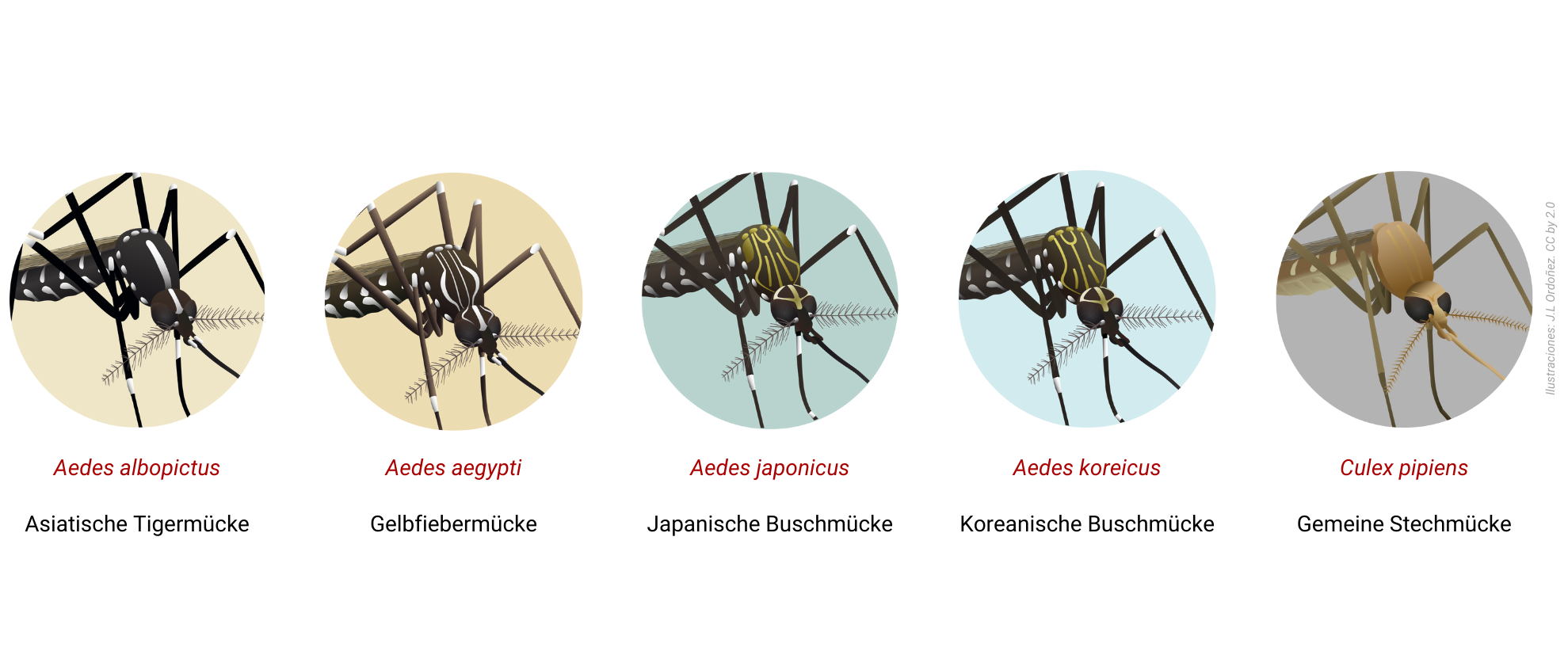
Citizen Science Seminar
In spring 2024, poject coordinator Karin Bakran-Lebl held a lecture about mosquito alert as part of the lecture series "Citizen Science Seminar" at BOKU University: "Mosquito Alert: In search of the tiger mosquito with Citizen Scientists" (in German).
Podcast episode
In July 2024, project coordinator Karin Barkan-Lebl was a guest on the Österreich forscht podcast Wissen macht Leute - you can listen to the episode here (in German).
More information (in German)
This project fulfils version 1.1 of the quality criteria for citizen science projects on Österreich forscht.
Humane PapilloWAS?
In order to find out how information about HPV needs to be prepared to reach the target groups, we are working together with parents, teachers and students in the project “Humane PapilloWAS?” to reveal what is known about HPV and which misinformation is circulating.
Background
Only 46% of the population in Austrian are aware about human papilloma viruses, or HPV, and only 34% associate HPV with cancer. This shows that there are gaps in the population's knowledge of a virus that almost everyone becomes infected with in the course of their life. A vaccination against HPV, which results in 90% protection against cervical cancer, could even eradicate cervical cancer and other HPV related cancer types if the majority of the population were vaccinated. HPV can cause 6 different types of cancer that also affect men. The vaccination should ideally be given to children between the ages of 9 and 13, as they develop the best immune response to the vaccine and the virus. It is therefore important that particularly parents and their children are informed about HPV through the right information channels. In order to find out how information about HPV needs to be prepared to reach the target groups, it is necessary to work together with the relevant groups of people already from the beginning. The project is supported by biomedical scientists, communication experts and people affected by cervical cancer.
Goals
The aim of the project is to give the population an understanding of HPV and its possible effects in order raise their health competence. It can also be a basis for communication measures in similar health-oriented projects in the future.
Realisation
In this project, the most effective information channels and methods were identified in several workshops in 2023 together with citizens, in order to develop a communication strategy for a good education campaign.
Within a smaller advisory board of citizens, a survey was developed in which around 900 people participated. The results will be evaluated in 2024 and published in an open access journal. Also in 2024, a communication campaign in collaboration with Citizen Scientists will be realised in Salzburg. Moreover, further events will take place to increase HPV awareness.
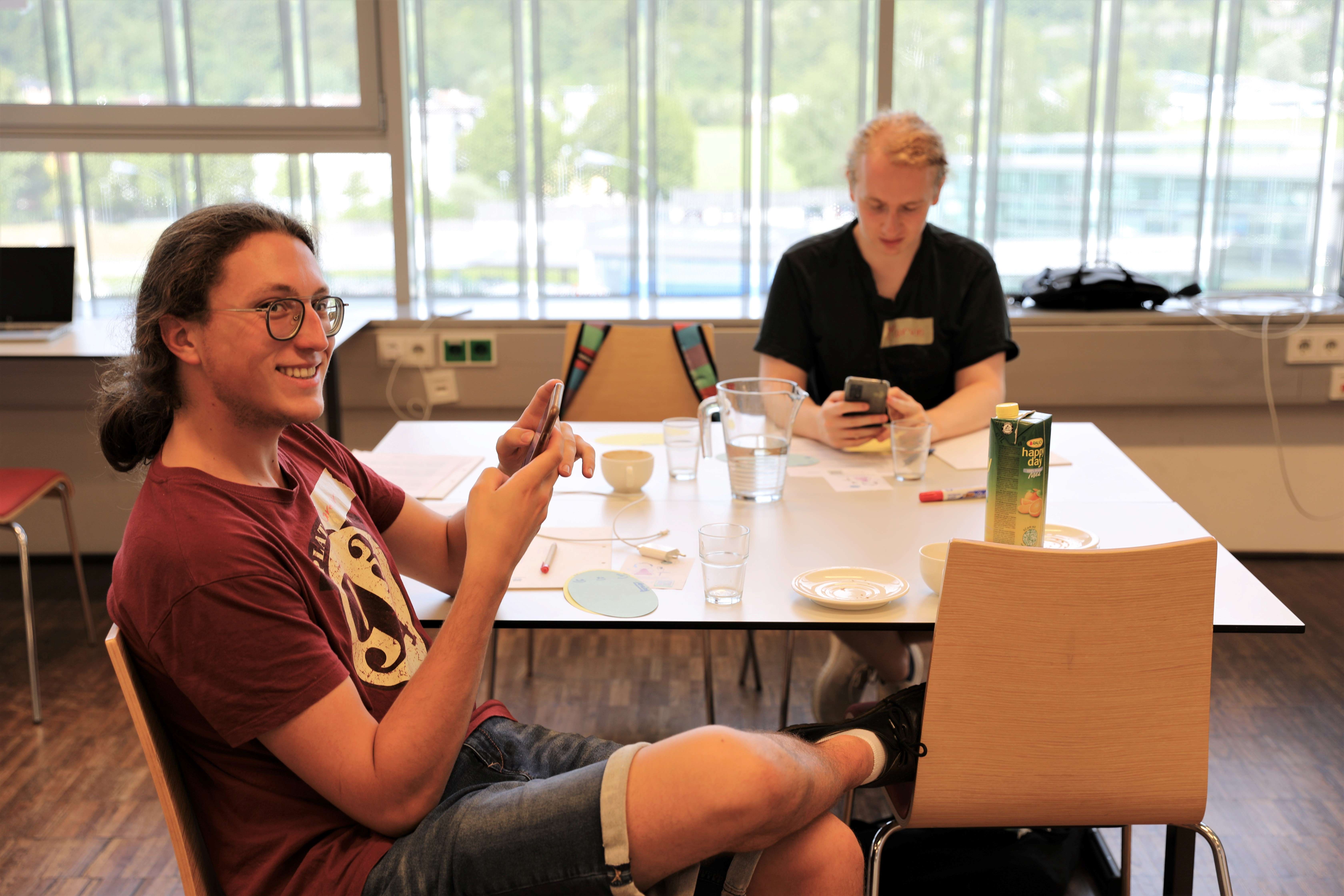
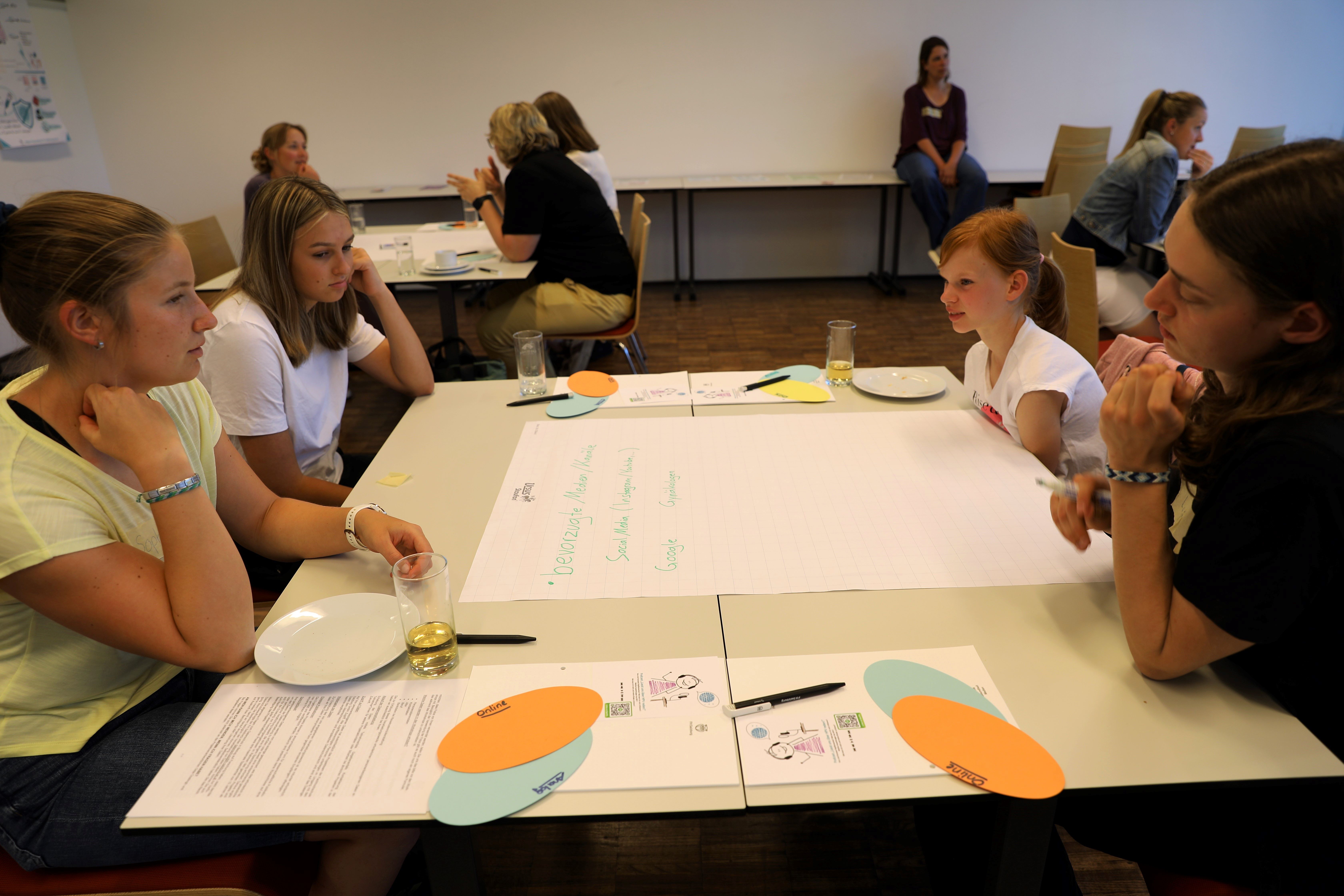
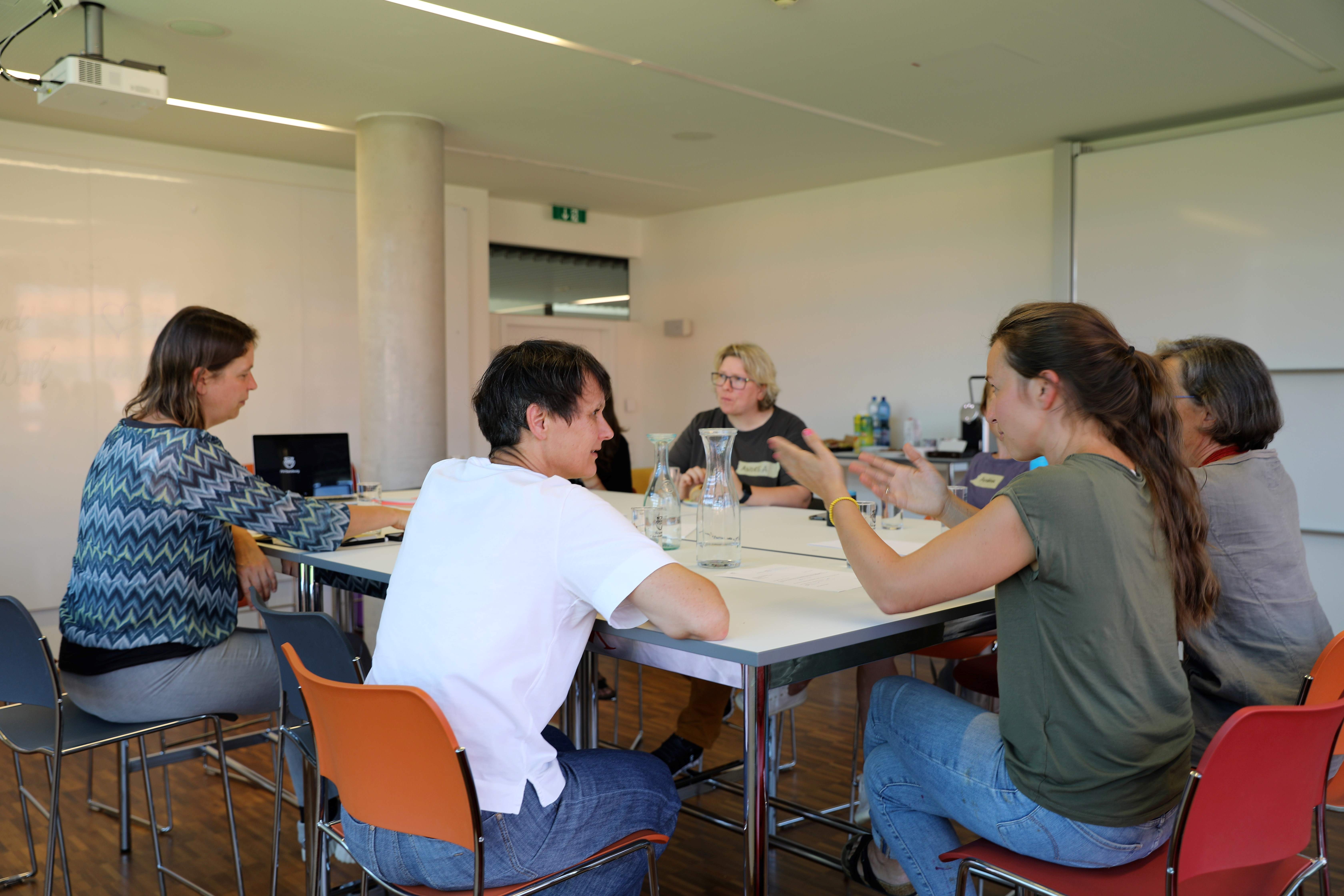 (c) BMA / FH Salzburg
(c) BMA / FH Salzburg
Roles within the project:
- Parents: This group takes on the role of those entitled to make decisions: How do I decide and how do I tell my child?
- Young people (student representatives): This group takes on the role and perspective of those directly affected when it comes to infection and vaccination.
- Teachers: This group forms an important intermediate link between parents and students in the transfer of information.
- Researchers: dissemination of information, science communication, support of citizen scientists, project implementation & workshop moderation
Citizen Science Award 2024
The project is also participating in this year's Citizen Science Award. School classes from the 4th grade onwards & individuals can take part from April 1st, 2024 to July 31st, 2024 and win the Citizen Science Award with prize money of up to € 1.000. Participants are invited to create a short video about HPV for social media and send it to the researchers. The three best videos will be awarded a prize and used for the awareness campaign. Register now to take part in the award: This email address is being protected from spambots. You need JavaScript enabled to view it..
Results
The results of the project are available on the project website and on the FH Salzburg website and were presented at an event together with the citizen scientists in November 2023.
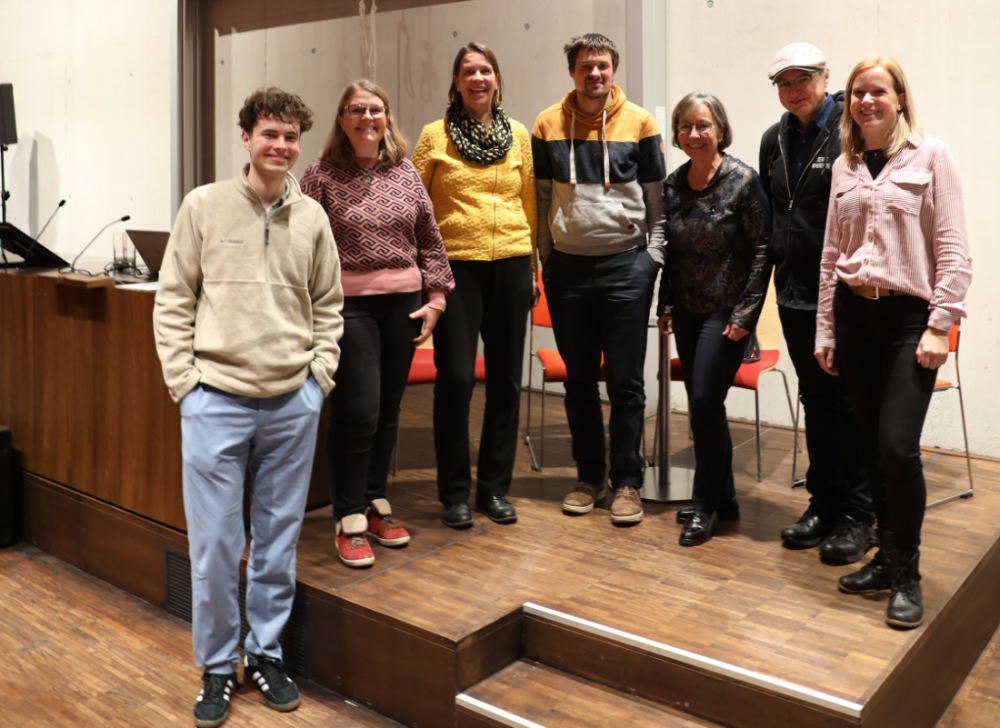
(c) Elena Franke / FH Salzburg
Podcast
If you would like to learn more, you can listen to the "Wissen macht Leute" podcast episode about the project (in German). More information can be found here.
The project also has its own podcast. You can listen to it on Spotify: https://open.spotify.com/show/5TdAebPNRHev8PtR8jLzTh.
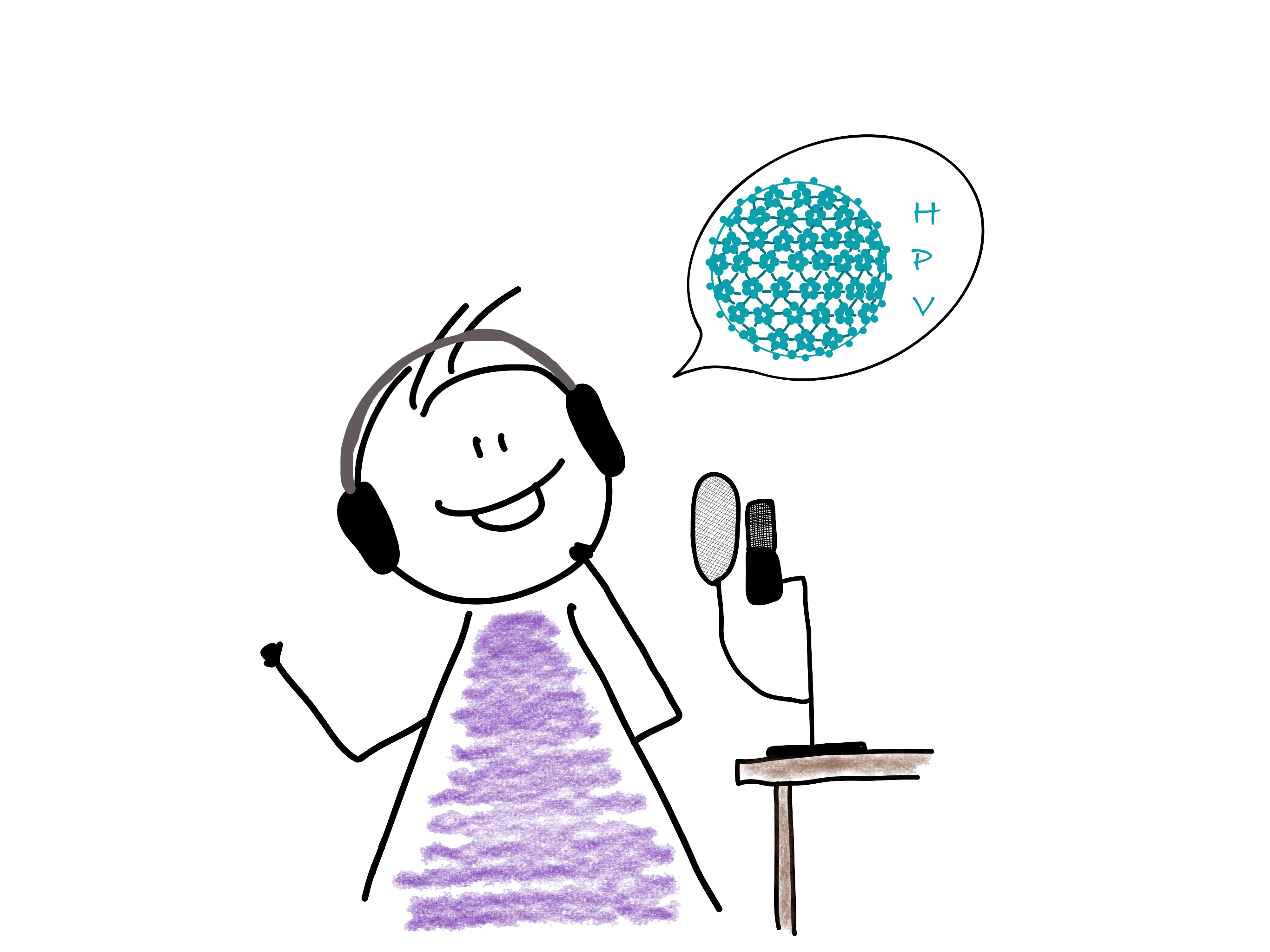

This project fulfils version 1.1 of the quality criteria for citizen science projects on Österreich forscht.
My Tune
Music therapy from our perspectives
“My Tune“ was a participatory research project in the field of music therapy (MT), which was carried out at the WZMF* and funded by the Ludwig Boltzmann Gesellschaft GmbH in the frame of the “Patient and Public Involvement and Engagement in Research 2021” call.
From March 2022 to April 2023, the “My Tune” research team developed a MT assistive reflection tool for young adult service users, namely the “My Tune” tool. The team consisted of:
- WZMF researchers Julia Fent & Irene Stepniczka,
- the co-lead team (steering committee: two young adult service users, one caregiver, two music therapists), and
- the co-creation team (three young adult service users, four music therapists).
The “My Tune” tool set comprises a short information for service users, a handbook for music therapists, and two parts of structured action:
- Part 1 is an interactive module for service users and music therapists that stimulates the service users‘ reflections on their MT processes in a creative as well as structured manner: Starting off from a memorable situation in their MT, service users are invited to make this memory more present by musically improvising, drawing, or bodily performing on the situation. The service users can then work on the situation of choice along pre-formulated question and answer cards together with the therapist. The answer cards also include an option for a free formulated reply. As such, Part 1 of the tool not only provokes personal reflection about topics that might not have been in focus before but also encourages the interaction between the service users and their music therapist.
- Part 2 of the tool consists of a set of cards posing questions for reflection for the service users that is processed on their own and addresses the role of music in the service users’ lives, their experiences in their music therapy, and the impact of their music therapy on their everyday lives.
Additionally, if wanted, the service users may e.g., take notes in a diary, make drawings, etc. to preserve their thoughts and feelings and share them with their therapist. This way, the “My Tune” tool empowers the service users by letting them decide if, when, where, what, how, and to what extent the tool is being used.
Besides the developed and tested “My Tune” tool the project also brought diverse and valuable insights into participatory research practice in the field of music therapy that will feed into future projects and research as well.
Podcast episode
If you would like to learn more, you can listen to the Wissen macht Leute podcast episode about the project (in German).
*WZMF – Music Therapy Research Centre Vienna, Department of Music Therapy, mdw – University of Music and Performing Arts Vienna, Vienna, Austria
Related publications:
Fent, J. & Stepniczka, I. (2022). My Tune – „Musiktherapie aus unseren Perspektiven“. Musiktherapeutische Umschau, 43(3), 258–260.
Fent, J. & Stepniczka, I. (2023). Participatory research in music therapy: Potentials and challenges in “My Tune”. Music Therapy Today, Special Issue: Proceedings of the 17th World Congress of Music Therapy, 18(1), 317–318.
Stepniczka, I. & Fent, J. (2023). “My Tune” – music therapy evaluation from a novel perspective. Music Therapy Today, Special Issue: Proceedings of the 17th World Congress of Music Therapy, 18(1), 325–326.
Stepniczka, I. & Fent, J. (2023). “My Tune: Music Therapy from OUR Perspectives”. PoS ACSC2023, 005. doi: 10.22323/1.442.0005.
This project fulfilled version 1.1 of the quality criteria for citizen science projects on Österreich forscht.
Urban Heat Stories
What are Urban Heat Stories?
It will get hotter and hotter in the city over the next few years. The impact of heat can vary greatly from neighborhood to neighborhood. It depends not only on the building density or the degree of sealing in the city, but also on the age and state of health of the people and their immediate living environment.
The Urban Heat Stories research project therefore collects individual heat experiences of vulnerable groups in Vienna. The aim is to make the diverse concerns and demands of city dwellers visible.
The aim is also to develop a chatbot pilot. It should provide insights into the social dimension of heat at city level. On this basis, recommendations for sustainable urban development in the face of rising temperatures can be expanded to include a social dimension, thus integrating the needs of vulnerable groups into planning in the long term
How does Urban Heat Stories work?
The main cooperation partners are the city's residents. In a two-part workshop, they first map their locations in the public space around their homes. The temperatures of the localized places are investigated using mobile sensors in a joint perceptual and exploratory walk. The measured temperatures are compared with the personal perception of heat. This provides a basis for discussion of the Urban Heat Stories. These stories are the foundation for the development of the new chatbot pilot on heat perception in the city.
How can I participate in the research?
Starting in September 2023, four workshops with senior citizens as Citizen Scientists have taken place around Quellenplatz (10th district, Vienna). The format is to be continued in spring/summer 2024 in other districts with other target groups. A first chatbot pilot will additionally be launched in winter 2024.
Upcoming events:
- Urban Heat Stories at the Citizen Science Day at the Natural History Museum Vienna: As part of the Citizen Science Day (06.04.2024, NHM Vienna), interested citizens will have the opportunity to learn about the project, share their own stories and measure temperatures with us. We are looking forward to your visit!
- Citizen Science Award 2024: We are delighted to have been selected as one of eight projects for the Citizen Science Award 2024. Workshops with schools will take place between April and July 2024. Details on how to register at: www.youngscience.at/csa.
If you are interested in conducting a Citizen Science research on heat experiences (e.g. workshop participation, chatbot test) in your neighborhood, we would also be pleased to receive a short initiative mail.
Podcast episode
As part of the episode "The Citizen Science Award 2024 - behind the scenes", Sebastian Harnacker presented the project in the podcast Wissen macht Leute. You can listen to the episode on our blog or on the podcast app of your choice (the episode is in German). You can find all the details here.
Blog Post on the Award-Winning Completion of the Project
The project 'OPUSH – Citizen Science Pilot Urban Heat Stories' was honored with the "CliA – Österreichischer Staatspreis für Klimawandelanpassung": https://www.citizen-science.at/blog/tu-wien-gewinnt-oesterreichischen-staatspreis-fuer-klimawandelanpassung-clia (Blogpost in German)
What happens with the results?
The findings will provide the basis for recommendations in urban planning and will be incorporated into current Viennese planning projects (e.g. WienNeu+, 10th district). They will also be published on the website of the future.lab Research Center of TU Wien. For participants - as co-researchers - the results will also be made available free of charge as a print edition.
Who is responsible for the project?
The project team consists of researchers from the future.lab Research Center and TU Wien Bibliothek as well as residents as citizen scientists. Urban research does not take place in a laboratory, but together on site. Residents contribute their experiences and interests.
The project is being implemented - as part of the European research project "OPUSH" - in close cooperation with the partner project Heat Chronicles (Cròniques de la Calor) of Open Systems at the Universidad de Barcelona. There is cooperation at local level with the City of Vienna (MA 22, MA 25, GB*), the Vienna Chamber of Labor and the Natural History Museum.
What roles are there in the project?
- The transdisciplinary project team is made up of the research group of the future.lab Research Center and the TU Wien Bibliothek. The TU Wien Bibliothek can draw on experience in the fields of big data and urban heat, among others.
- The residents participate as citizen scientists in the development of content for the Chatbot and are central to the collection of data in the form of micro-stories.
- The Natural History Museum is involved as a local stakeholder with extensive experience with citizen science experiments.
- Local project partners are also the municipal departments of the City of Vienna MA 21 and MA 22 (expertise and meteorological background data), the Vienna Chamber of Labour (e.g. social space monitor), OpenKnowledgeMaps (data visualization) and Wunderbyte (chatbot programming).


This project fulfils version 1.1 of the quality criteria for citizen science projects on Österreich forscht.
Update Social
With your ideas towards a innovative social sector for all
Our society is facing numerous social challenges and the public administration, charities & social service providers, civil society and (social) enterprises are already working to solve them. In the face of increasingly complex challenges, there is a need for more collaboration and dialogue across sectors. Together we can achieve more!
UpdateSocial is designed to provide the framework for collaboration!
In all sectors of our society, there are people who either already have an idea for solving a challenge or want to develop new approaches (e.g. new products, social services). With UpdateSocial, we bundle the innovative power of all sectors and create a breakthrough together. We thus combine the wealth of ideas of civil society with the implementation power of charities and public administration.
To begin with, we (you and I, and many people from different sectors) come up with ideas and approaches to solutions for the previously defined social challenges in a collaborative 48 hour “Ideenwerkstatt” (Ideation Lab). A support program (Accelerator Program for approaches to solutions to social challenges) will accompany the further development of these approaches to make them ready for collaboration with piloting and scaling partners such as Volkshilfe Upper Austria, other social service providers or public administration.
ALL are called to participate. Co-creative, local and digital.
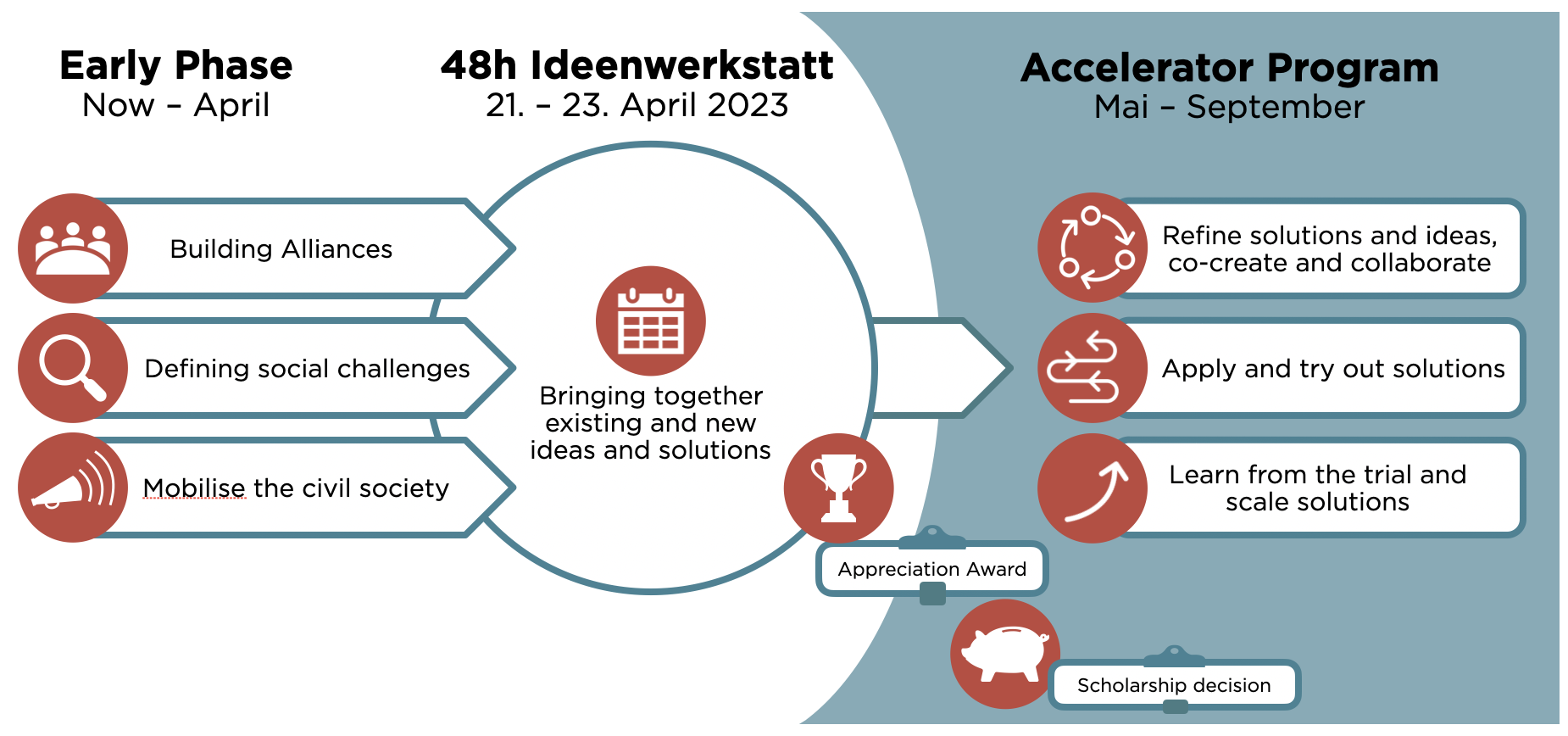
Join the update of the social sector by citizens for citizens!
Together we can drive innovative solutions and strengthen the community for social innovations in Upper Austria.
Role as participant:
Become part of the community of makers, benefit from a public-supported, collaborative and solution-oriented cooperation, help to develop new solutions for the social challenges of our time or commit yourself to take it to the next level with your idea. Curious? Then visit us at https://updatesocial.org/mitmachen/.
Role as mentor / ambassador / implementation partner:
- Support the participants with your knowledge and network. Work with the community at eye level and contribute to a livable future for all.
- Join us in calling on all citizens in Upper Austria and everyone who wants to come to participate in the 48h “Ideenwerkstatt” (Ideation Lab). Whether it's a newsletter or social media - anything works and helps us.
- Do you know other role models who stand for change? Invite them to become part of UpdateSocial.
If you are interested, please contact This email address is being protected from spambots. You need JavaScript enabled to view it..
These partners are already part of UpdateSocial: https://updatesocial.org/team/#partner.
Our mission
With UpdateSocial we want to strengthen the social innovation ecosystem in Upper Austria. The core element of this ecosystem is a strong and transformational community in which there is trust in each other. Thus, this initiative serves as the basic building block for an organically growing movement that drives the digital and green transformation of the social service sector.
How does UpdateSocial work?
Form alliances and define challenges
- We form alliances with leading actors from all sectors to pool everyone's innovative power and foster collaboration.
- The focus is on social challenges that need to be solved. Together with key players in public administration (Land OÖ - Upper Austrian provincial government, Stadt Linz) and with the expertise of Volkshilfe Upper Austria, we identify relevant social issues that we address to civil society.
Mobilizing civil society and (further) developing solutions
- Through an open call at the beginning of March, civil society is to be mobilized for UpdateSocial. Thus, a community will be built to advocate for a sustainable social service sector.
- In mid-April (21. - 23. April 2023), the 48h “Ideenwerkstatt” will take place, where existing and new solution approaches for the identified challenges will be developed. Selected solutions will then be awarded by a jury in diverse categories.
Supporting and scaling ideas with potential
- Initiatives can apply for a support program after the “Ideenwerkstatt” (until 04. April 2023). This starts at the beginning of May (10. Mai 2023) and helps the teams to further develop their solutions through e.g. expert inputs, community meetings and the help of mentors.
- Following the support program, the pilot program will start in October 2022. On October 3, 2023, the project groups will have another opportunity to present their solutions at the Community Celebration. Joint successes will be celebrated, the next steps will be targeted, and the future of the social innovation community will be shaped. What works will be piloted with united strength, e.g. with the help of an implementation partner from our network for social innovation.
Derive and process insights
- Throughout the process of UpdateSocial, which is funded as a scientific project by the Ludwig Boltzmann Gesellschaft, we are collecting insights for a comprehensive "Learning Report" for shared learning on the one hand and for basic research of Open Social Innovation on the other hand.
More information about the project can be found here:
- https://updatesocial.org
- https://updatesocial.org/linktree/
- https://ooe.orf.at/stories/3200196/
- https://www.linkedin.com/company/updatesocial/
- https://www.instagram.com/updatesocial_ooe/
https://www.citizen-science.at/en/about/team/tag/health?start=10#sigProIdea3ccad175
This project fulfils version 1.1 of the quality criteria for citizen science projects on Österreich forscht.
The Psychological is Participatory
Counselling centres for women* are important institutions that have been founded since the 1980s by the second women's movement. In the project, researchers are conducting research together with counsellors and clients of Viennese women's* counselling centres. We are interested in the life stories of women* who seek help at counselling centres. How can women lead a good life in this society today and what role can women's counselling play in this? In workshops, questions and methods are developed together with the project partners. The women* and the counsellors are guided to document their knowledge and experiences in the form of narrated stories or/and with visual methods. The use of a critical participatory action approach enables both counsellors and clients to reflect on changes that have occurred through a feminist, psychological counselling process.
The perspective of women clients has very rarely been considered in the history of psychology. Especially structurally disadvantaged women* are often not heard, e.g. migrant women or single parents affected by poverty. Research with clients aims to empower women* and to explore with them how social circumstances have shaped their lives.
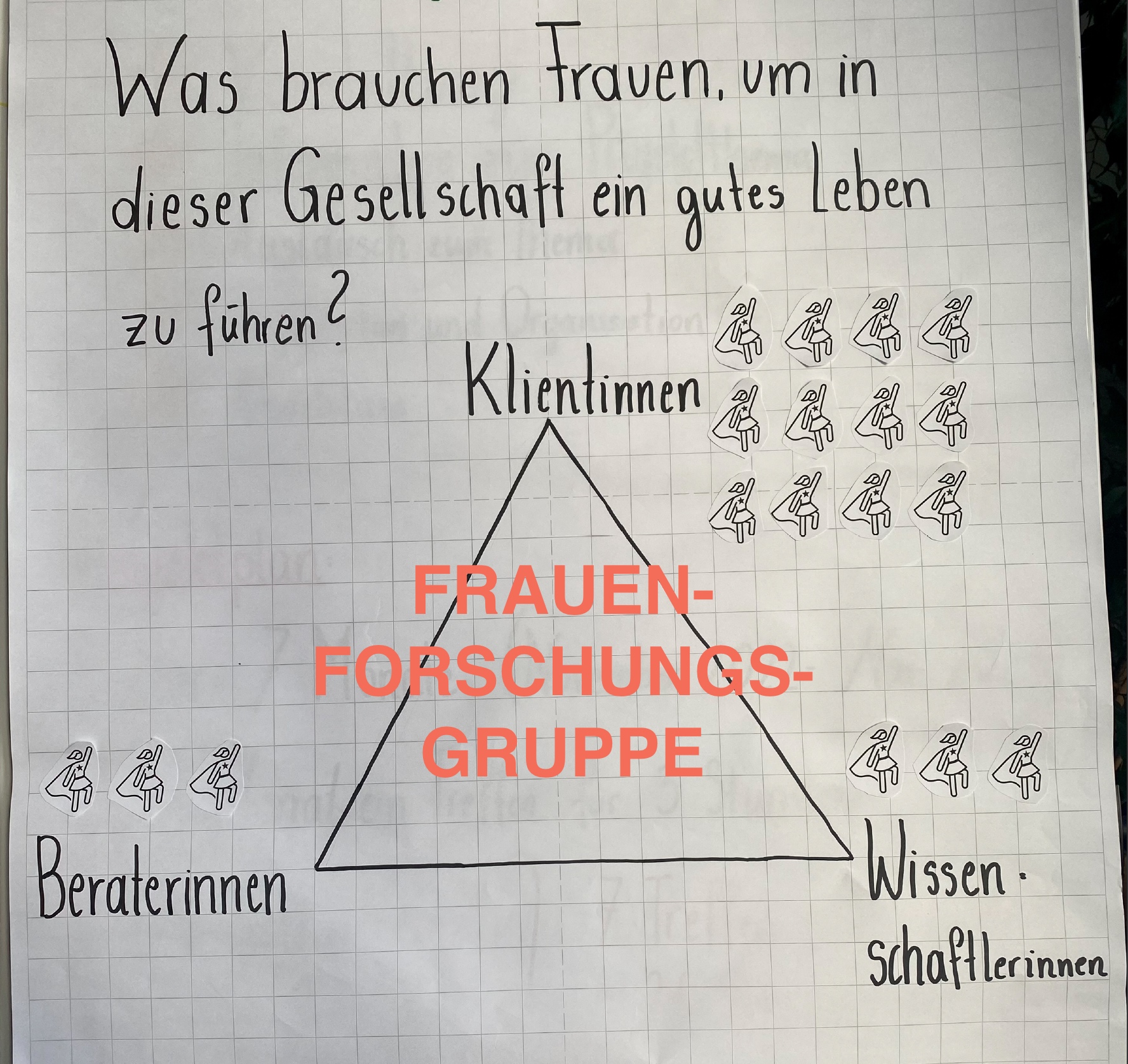
"The Psychological is Participatory - Feminist critical participatory action research with women's counselling centres and their clients" (2022-2023), funded by the Austrian Science Fund FWF (TCS 112 Top Citizen Science) and co-financed by the Women and Family Department of the Arbeiterkammer.
Project management: Ass.-Prof. Dr. Nora Ruck
Project team: Dr. Barbara Rothmüller, Julia Struppe-Schanda, MSc.
In the project we are conducting research together with Dr. Bettina Zehetner from the counselling centre Frauen* beraten Frauen* and Dr. Sigrid Awart and Dr. Andrea Kaiser-Horvath from the counselling centre Peregrina as well as with 12 clients from both counselling centres*. Prof. Michelle Fine & Prof. María Elena Torre (CUNY), Prof. Thomas Stefan (Postdam) and Prof. Alexandra Rutherford (Toronto) advise us on the Advisory Board of the project. The project is scheduled to be completed in December 2023.
*Participation is restricted to these clients.
Podcast episode
In April 2025, Nora Ruck was a guest on the Österreich forscht podcast Wissen macht Leute - you can listen to the episode here (in German).
This project fulfils version 1.1 of the quality criteria for citizen science projects on Österreich forscht.


